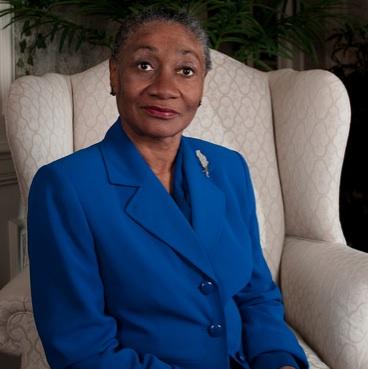UPDATED @ 11:59 a.m. Jan. 17: Baldwin referred a reporter’s inquiry to Bill Mahon, the Penn State vice president for university relations.
In an e-mail message Tuesday morning, Mahon said that Baldwin, in her planned departure, ‘is following through on the original plan announced in January 2010, when she took on the role of general counsel.’
That plan held that Baldwin was to serve as Penn State general counsel in a transitional capacity, as noted in the report below.
Mahon did not address specific questions about whether the timing of Baldwin’s exit is connected to new legal challenges facing Penn State.
Earlier coverage is posted below.
———-
Initial report, posted @ 5:19 p.m. Jan. 16:
Penn State’s top legal officer will leave the position soon, the university announced Monday.
University trustees named Cynthia Baldwin, a former state Supreme Court and former Penn State board chairwoman, as the university’s general counsel and chief legal officer in January 2010. Her job carries the title of university vice president, as well.
The tripartite role was newly created when she accepted it. And she did so ‘with the understanding that she would serve in a transitional role to help establish and organize the office, manage Penn State’s legal function and pave the way for a permanent general counsel to be hired following a national search,’ according to a university statement.
‘ … Baldwin has said the time has come for her to transition,’ it goes on.
The statement offers no further explanation of Baldwin’s reported move, including its timing. She could not be reached immediately for comment Monday afternoon.
But the news comes at a troubled time for the university, as it faces fallout — including the specter of numerous civil lawsuits — from the Jerry Sandusky sexual-abuse and cover-up charges.
Two longtime university administrators — Tim Curley and Gary Schultz — have been charged in connection with the matter. They and Sandusky, a former assistant football coach, have maintained that they are innocent.
It was not immediately clear Monday the degree to which Baldwin has been involved in university responses to the crisis. She was present in Old Main, however, when trustees convened for a Sunday-night meeting right after the charges were filed in November.
According to Penn State, Baldwin oversees at the university ‘a very busy unit, with two attorneys, a paralegal and an administrative assistant at University Park, and two attorneys and a paralegal based at Penn State Hershey.’
Her office provides advice to the university trustees, administration, faculty and staff, Baldwin said in a prepared statement.
She went on: ‘We also coordinate and monitor legal actions with outside counsel; review and participate in the formulation of university policies; assist in developing and interpreting rules and guidelines concerning university activities affecting compliance with federal and state laws and regulations; prepare and review legal documents, including contracts and licensing agreements; and collaborate with the university’s Risk Management Office and the Affirmative Action Office.’
According to a Penn State statement, the general-counsel office is now set ‘to be taken over by a permanent general counsel.’ Baldwin and Damon Sims, the vice president for student affairs, are leading a search to identify her successor, the statement reads.
The creation of the in-house legal office followed a recommendation from an external review in 2009. Baldwin joined the university administration from the international law firm Duane Morris, for which she was a partner and worked in the Pittsburgh office. Before that, she served on the state Supreme Court from 2006 to 2008. A former Penn State trustee, she was the university board chairwoman from 2004 through 2006.
Related coverage



